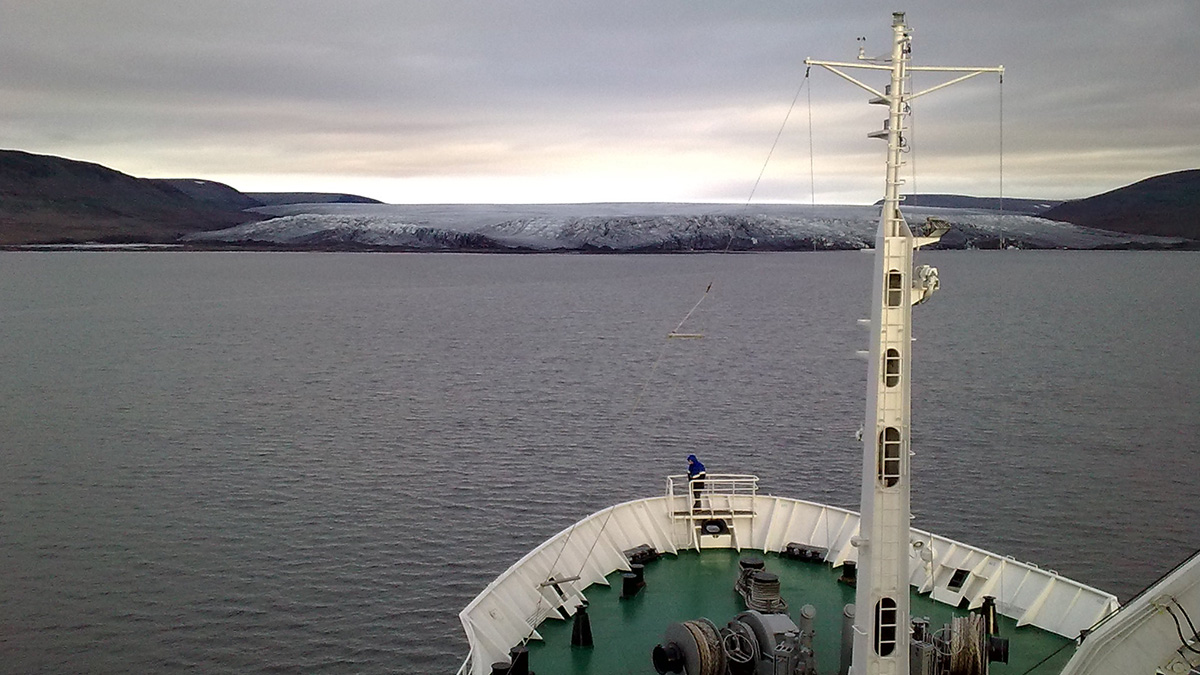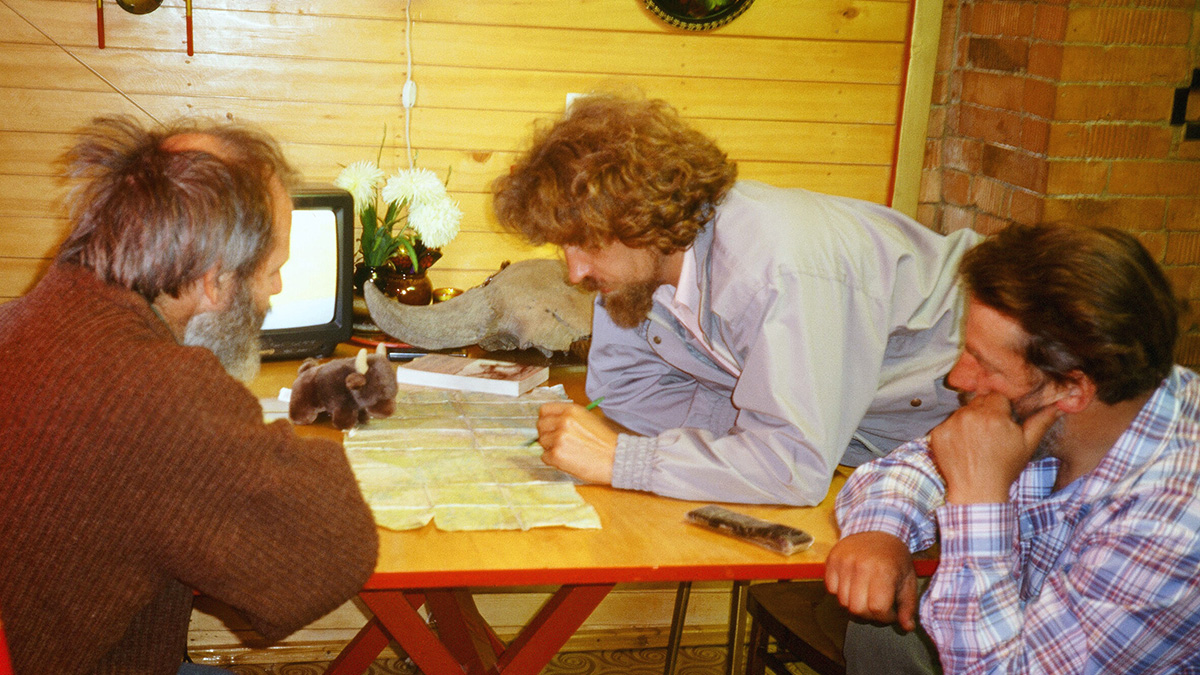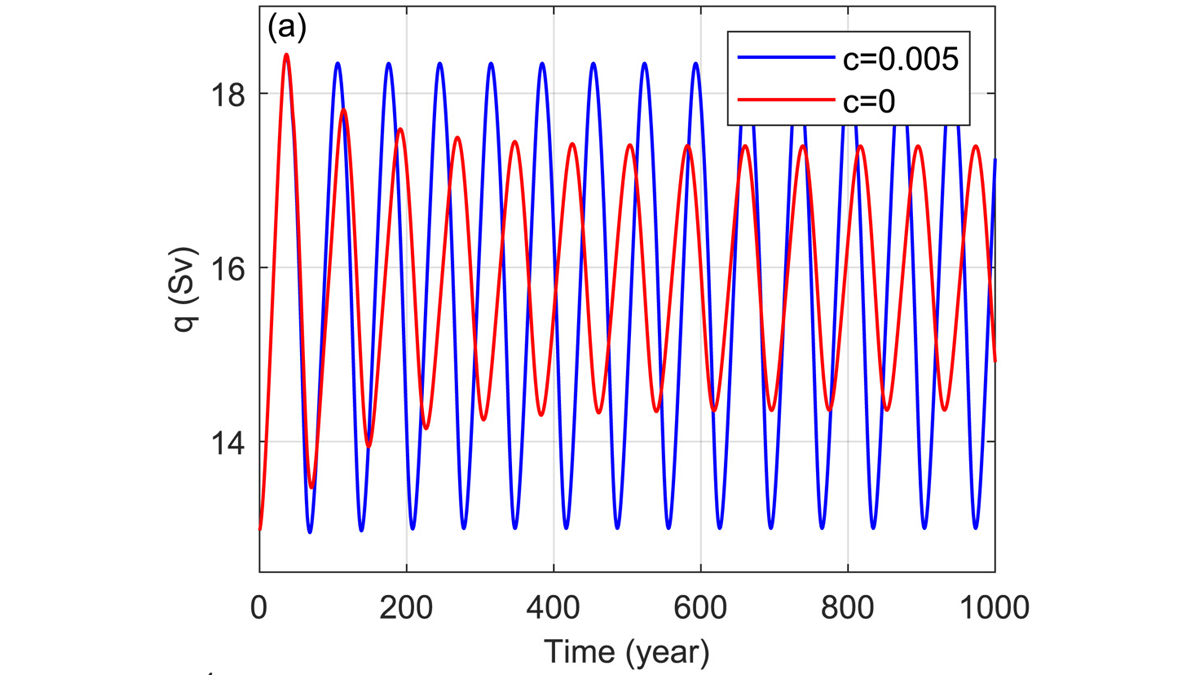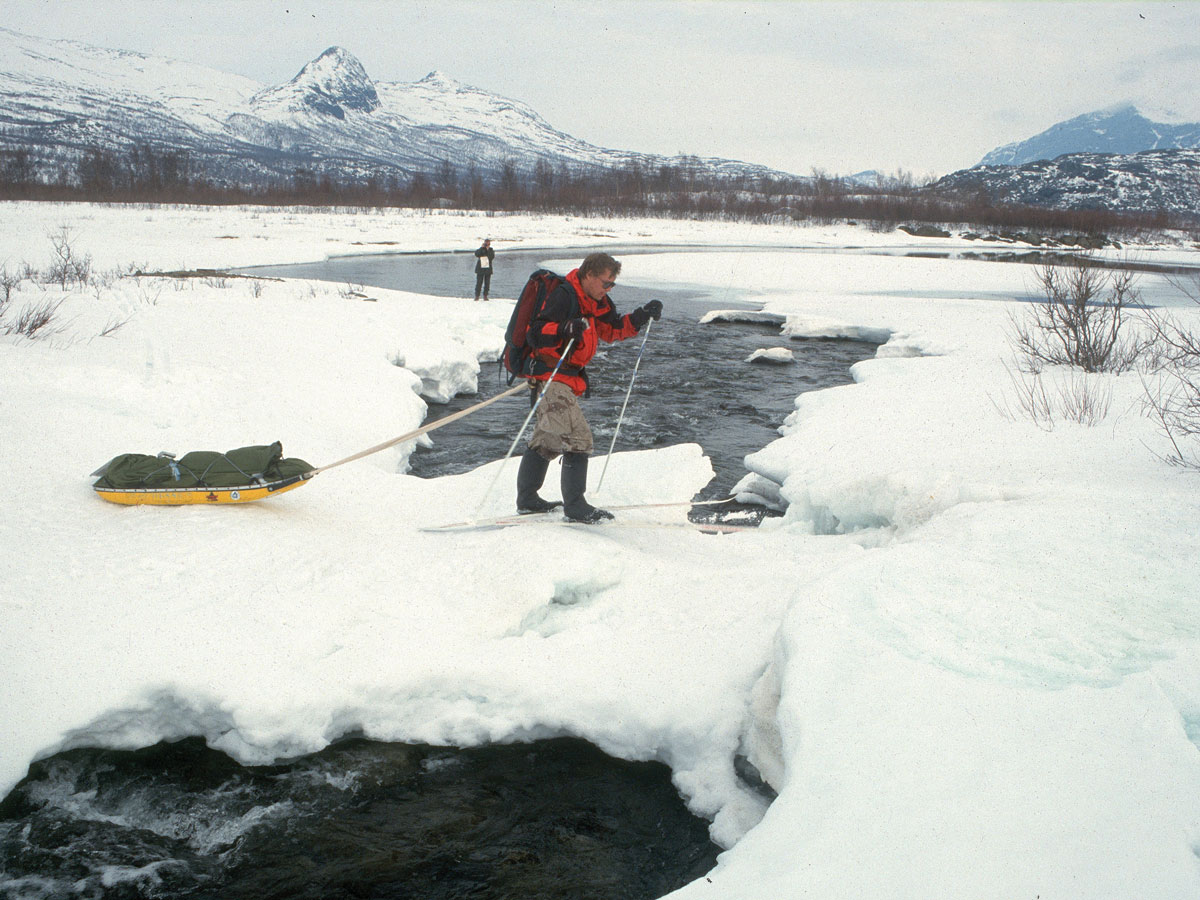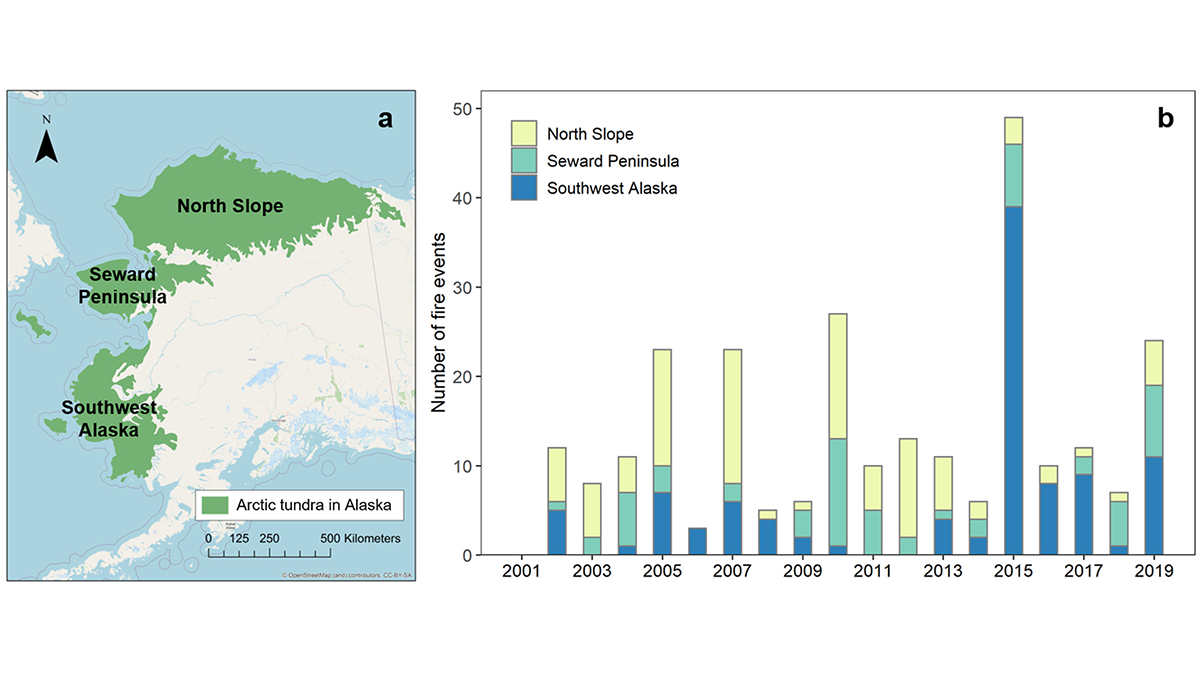Researchers found phytoplankton hidden on the Arctic seafloor, hinting at a cascade of effects on the local ecology and carbon cycle.
Arctic
Satellites Get First Full-Year View of Arctic Sea Ice Thickness
The AI-based monitoring method may unlock data that could improve shipping safety and climate predictions.
Arctic Glaciers, a Peruvian Volcano, and a Russian Famine
A team studying Russian glaciers found evidence that a volcanic eruption in southern Peru changed the planet’s climate at the beginning of the 17th century.
The Burning Tundra
As wildfires blaze through the Arctic, scientists examine the role of landscape characteristics on wildfire ecosystem responses in northern aquatic ecosystems.
Capturing Ocean Turbulence at the Underbelly of Sea Ice
A specially designed instrument enabled researchers in the Arctic to measure turbulence within 1 meter of the interface where ice meets ocean.
The Long-Lasting Impact of a Nuclear War on the Ocean
Model simulations of the impact of a large-scale nuclear war reveal long lasting effects with much of the ocean not returning to pre-war levels despite the cessation of the initial cooling.
How an Unlikely Friendship Upended Permafrost Myths
“Beautifully long arguments” between an American scientist and a Russian researcher helped clarify several fundamental assumptions about permafrost thaw.
Arctic Salinity Pushes the AMOC Swing
A model of the Atlantic Meridional Overturning Circulation (AMOC), pioneered by Henry Stommel over 60 years ago, can exhibit realistic cyclic behavior if the role of Arctic salinity is included.
Tero Mustonen: Disrupting the Status Quo
Advocating for the importance of Traditional Knowledges in Finland and beyond.
Lightning in Alaskan Tundra Ignites Most Fires
Cloud-to-ground lightning is found to be the most important controller of wildfire occurrence in the Artic tundra of Alaska from 2001 to 2019.



